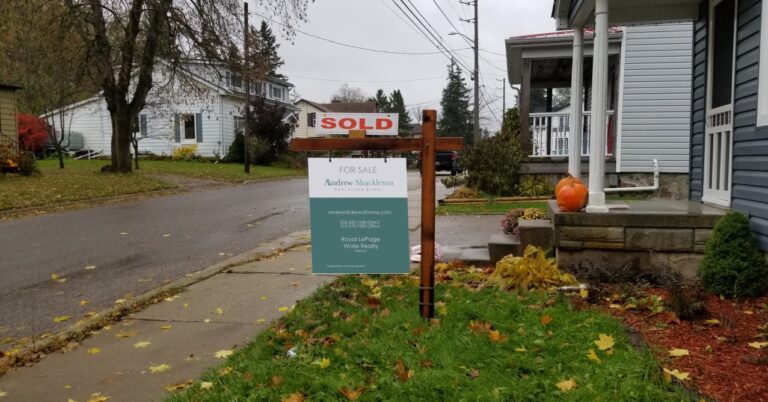Open Mortgages
With an open mortgage, you can sell your home without penalty for breaking the mortgage contract early. An open mortgage allows the homeowner a fair bit of financial flexibility without incurring charges from the lender.
An open mortgage allows for additional mortgage payments without limitations, as well as changes to your payment frequency, and also lets you refinance, pay off, or break your mortgage before the end of the term, all without prepayment penalties.
But nothing is ever free of course. Open mortgages almost always have higher rates than closed ones to offset the costs of the privileges the lender provides you.
Open mortgages are usually chosen by homeowners who want to be able to pay off their mortgage earlier as circumstances warrant, or if they want the flexibility of selling their home before the end of the mortgage term.

Closed Mortgages
Borrowers who intend to stay in their home for the duration of the mortgage term often choose closed mortgages due to the lower rates they offer.
The conditions in a closed mortgage are locked in for the duration of the mortgage term. Large lump sum prepayments are not allowed, but you can typically pay down smaller amounts in addition to your usual payment schedule. Once you sign your mortgage documents the contract can’t be altered in any significant way without incurring penalties.
If you decide to sell your home before your term ends, you’ll be hit with a prepayment penalty for breaking the mortgage contract. This can be thousands of dollars and will vary based on the terms of the mortgage you have.
You’ll be looking at a ton of smaller charges too; administrative fees, appraisal fees, reinvestment fees and a mortgage discharge fee, which removes the charge on your current mortgage and registers a new one. You might need to repay any cash-back or heloc funds you’ve accessed through your mortgage.
Needless to say, with a closed mortgage, breaking the contract before your term ends can be a very costly experience indeed.

Options For Breaking Your Closed Mortgage
There are a couple of options if you’re selling with a closed mortgage. If you’re buying another property, some lenders may allow you to port your existing mortgage over to the new property. Portable mortgages usually allow for blending of the existing mortgage rate and the current rate if additional funds are required if, for example, a more expensive property is being bought. This option is something that would have and should have been discussed at the start of your current mortgage term.
If you don’t have a mortgage with a portability option the only other choice is to break the mortgage early and pay the penalty. If you have a choice in whether you sell your home before or after the mortgage term ends, ensure that the benefits of breaking the contract early (for example, getting another house you really want) outweighs the costs of paying the prepayment penalty and any other associated fees.
Typical Penalties For Breaking Your Mortgage
Lenders use various techniques to impose penalties on borrowers if they break their contracts early. The most common formula is the difference between the lender’s present rate and the contractual rate, which is referred to as the interest rate differential (IRD). The other method used is to simply charge you 90 days interest for breaking your contract.
Here’s the math:
For the 3 months interest penalty multiply your outstanding mortgage balance by your mortgage rate and multiply the answer by 0.25.
For example, here’s the penalty calculation on a balance of $440k @6.1%
$440,000 x 0.061 x 3/12 = $6710
Total 3 months interest penalty is $6710
It’s quite a bit trickier for the IRD penalty and there are several variations lenders use. Here’s one of the least complicated.
You’ll need your existing mortgage balance, rate and time left on the term:
For example $440k owed, 6.1% and 11 months.
Current rate on a 1-year term: 4.69% (closest term to the time left on the mortgage in this example)
Rate difference between your mortgage rate and current interest rate:
6.1% – 4.69% = 1.41%
Multiply the mortgage balance by the rate differential to get the interest owed for 1 year and multiply that amount by 11/12
$440,000 x 1.41% x 11/12 = $5687
Total IRD penalty is $5687
If your mortgage is variable, 3 months of interest is the usual charge. If it’s fixed it’s either IRD or 90 days whichever is higher. In both examples above you’d be paying $6710 (90 days), plus any additional fees the lender has written into the fine print.

Thinking Of Selling Your Home?
If you’ve got a mortgage that’s not up for renewal yet, set up a meeting with your lender and go over your options before you list your property. Make sure you understand the costs associated with breaking your mortgage contract as they can be significant. If you’re purchasing something else after you sell your current home you definitely need to speak with an expert to see exactly what you can afford before you begin house hunting.


